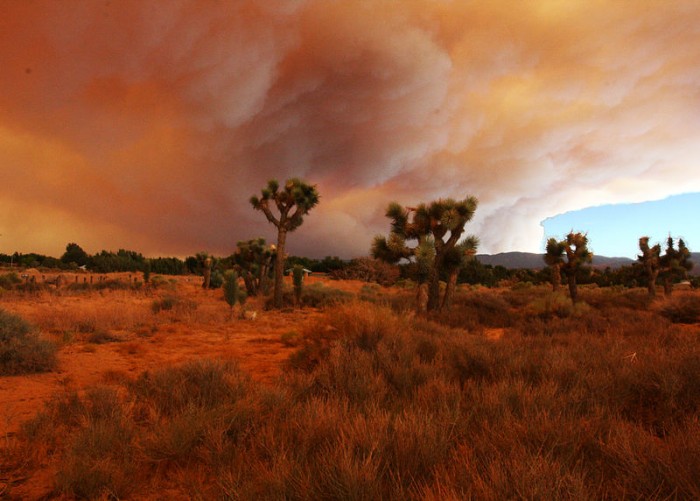Places and structures hold parts of ourselves.
Don’t think they don’t.
During the Watts riot my high school was destroyed. I was at a convention at a hotel somewhere in the United States—one of those kinds of hotels that looks so much like every other kind of hotel that, as the years roll by, you can’t remember whether it was in Cincinnati or in Tallahassee—when I saw the news.
Watts was burning—fires and destruction and rampaging and wild, out of control maniacal mobs were everywhere. Trash. Clutter. Devastation. Ah, my beloved Los Angeles! My high school years…
They were trampling on my memories. They were trampling on my 16-year-old self. They were sullying the me that wore saddle oxfords and short pleated skirts and bobby sox and pony tails. They were destroying the streets that I rode down with boys who had cars with the windows open and the California wind blowing in and the Beach Boys playing on the radio.
I was fine until I caught a glimpse of my high school. The big pink building turned black with smoke and ash. The convent with its attached outbuildings and green campuses with the white statutes of the Blessed Mother and the Baby Jesus sprinkled all over the place, turned dank and broken.
“Oh, my God. That’s my high school.”
How could that happen? The buildings that housed my memories were being destroyed and it felt like a part of me was being destroyed along with them.
And I took my memories and told them not to worry—the building that they took place in might be gone, but they would live on inside of me. I took them and nourished them and kept them. Right in a little pocket next to my heart.
I thought I wouldn’t have to open that pocket again.
And then Harbin burned. Harbin Hot Springs—the magical, spiritual, exquisitely and tenderly painted and decorated and loved hot springs resort retreat center. Where there were goddesses painted on the walls and prayers painted on the rocks and signs everywhere reminding people to be silent. Where the quietude was the quietest and the massages were the deepest and the yoga classes were the most restorative.
Harbin—where people went to rest and restore and remember and repair themselves in the hot, steaming, healing waters for centuries. Where my husband and I went for the same reasons ourselves, over and over again twice a year for 18 years.
One of the most beautiful places of its kind on earth and among the most beautiful memories of my life.
But then, I think, these places that have burned were not my home. They were not the house I was raised in or had Thanksgivings in or had Christmasses in or that the babies were brought home from the hospital in. They were not the house I moved into right after I got married or even the house next door that was burned to the ground while mine miraculously stood. They were not the grocery store I walked to or the hardware store I shopped in or the library or the church—they were not the every single building in my town that burned to the ground. And I think how much we lose when we lose all of that.
Places and structures hold parts of ourselves. Don’t think they don’t. They do.
When I was in San Francisco studying Feng Shui my teacher was a practitioner who was born in China to a family of Feng Shui practioners. He had the demeanor of a man who knew his lineage and the depth of his knowledge—a deeply wise, quiet, slow talking man who expected fully that when he was teaching, he didn’t have to speak up. He would be heard.
“And so,” one of the students in the class asked him, “what if such and such a wall in my house is not strong, and is not holding up the roof the way it should be? What then?”
Professor Liu looked at the man who had asked the question. His eyes hooded. His response deliberate.
“If the wall in your house is not holding up your roof, you will become very sick,” he said.
“But, what does the wall in the house have to do with me?” the student persisted.
“The wall in the house has to do with you because you are one.” he said. “Because we are our houses. We are our environment. There is no difference between us.”
When I heard that I understood why I felt the way I felt during the Watts riots, even though I didn’t live in Los Angeles anymore and hadn’t lived there for many years. During the Watts riots I felt as if a part of me had been rioted against.
And today.
When I learned of the brush fires in Lake County, California that burned the entire village of Middletown and Harbin Hot Springs to the ground, I understood why I felt the anguish I felt.
I couldn’t say to myself, “It’s only a building. It’s only a place, that burned.” I couldn’t because that wasn’t how I felt and because of the truth of Professor Liu’s words.
“We are our environment.”
We are the places we have been and they are us. When Harbin burned, a part of me went with it. When these places go up in ashes, parts of us go up in ashes with them.
Goodbye, Harbin. Goodbye.
I’ll take my memories and tell them not to worry. You may be gone, but the memories will live on inside of me. I’ll take them and nourish them and keep them.
Right in a little pocket next to my heart.
~
Relephant read:
Hiraeth: Homesickness for a Place that Doesn’t Exist.
~
Author: Carmelene Siani
Editor: Khara-Jade Warren
Image: Rennet Stowe/ Wikimedia Commons

 Share on bsky
Share on bsky







Read 2 comments and reply